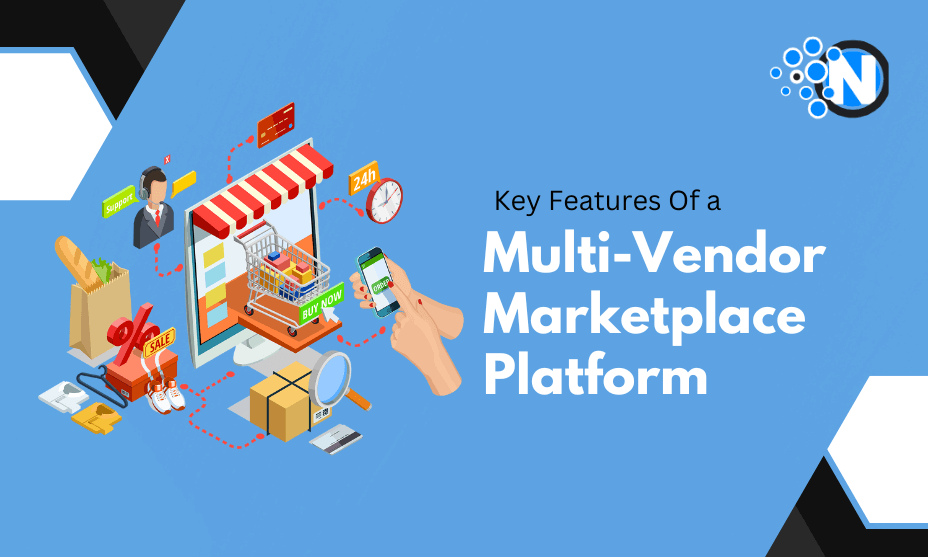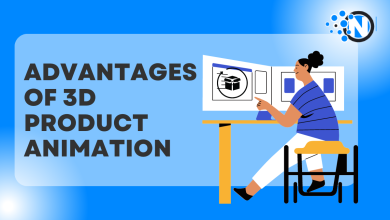What Are The Key Features Of a Multi-Vendor Marketplace Platform?

A multi-vendor marketplace platform enables multiple vendors to sell products or services on a single online platform. These platforms are becoming increasingly popular, offering both businesses and consumers several benefits and features. In this article, we will discuss what a multi-vendor marketplace platform is and the key features you should consider when choosing a multi-vendor marketplace.
Concept of a Multi-Vendor Marketplace Platform
It is an online platform or application that allows different vendors to list and sell their products. It is a single platform that is available for multiple sellers to sell or list their products. Businesses can utilize this platform to build their own digital marketplace for handling products, sales, and customer engagement.
There are three models managed by the multivendor including fintech, commerce, and logistics. Many conventional ecommerce platforms are created in the pre-mobile and pre-cloud era. So we can say that these are considered ideal at the time when most e-commerce transactions are handled through mobiles.
Key Features of a Multivendor Marketplace Platform
There are many benefits that we can get by utilizing the multi vendor marketplace platform. But here we break these into given categories so looking at these!
- Product management
- Logistics management
- Vendor management
- Payment management
Let us have a deep look at these categories to find what each looks like:

1. Product Management
From development to pricing, It is the organizational function that leads every step of the product cycle. With the variety of the vendors and the products, it is looking like easy to find how the marketplace can become unruly. This is the reason why, as an inventory, the marketplace is considered better.
Without the hand holding, sellers should be allowed to input comprehensive product descriptions, graphs, specifications, and all categories. This practice leads the customers to search for the products that they need for the time.
2. Logistics Management
It is the process of controlling, implementing, and planning the efficient flow of products. From the initiative to the point of consumption, this type of management also serves as the storage of products, services, and other types of information.
This task entails the transfer of resources, merchandise, and data across the supply chain to satisfy the customer’s demand and meet the company’s requirements. This is important to keep in mind that without holding any type of inventory, any business can operate the marketplace. This asset-light strategy still demands several logistic capabilities, such as:
● Shipping Integrations:
With the help of this multivendor marketplace platform, shipping integration can easily be integrated. For sellers, it provides like ShipBob, ShipStation, or Shippo. These are some platforms that make the communication flow between sellers, buyers, and operators.
● Warehouse Inventory Management:
All over the world, there were too many limitations held on various warehouses at the time of shipping.
3. Vendor Management
It is the discipline that helps to manage costs, mitigate risks, and drive service excellence. This vendor management system helps to gain up values throughout the whole life cycle.
For marketplace success for a business to business, it is considered important to join and sell the services. Here are some features including;
● Vendor onboarding for a self-service
● Vendor contract management
● Adjustments and the commission calculation
● Payout accounting and inventory management
● Vendor portal for product uploads
● Communications and E-commerce tool integrations
4. Payment Management
Within any business or organization, it is the process of handling the perspectives of payment transactions. From buyers and sellers, it is expected to get a seamless experience when it comes to payment receiving.
There are some steps involved in payment management are;
● Reconciling accounts
● Compliance with regulatory requirements
● Processing payments
● Managing payment methods
● Customers payment receiving
Additional Features to Consider
- Mobile Responsiveness: A platform optimized for mobile devices to ensure a seamless user experience for customers.
- Multilingual Support: For marketplaces targeting international audiences, offering multilingual support can be a valuable feature.
- Social Media Integration: Integration with social media platforms can help promote the marketplace and drive traffic to the site.
- Vendor Subscriptions: Some platforms offer tiered subscription plans for vendors, providing different levels of features and benefits based on their needs.
Conclusion
For the success of e-commerce operations, a multivendor marketplace platform offers a variety of features. In the article above we have discussed key features that are considered important.
The reason is that it provides an essential infrastructure for both; customers and sellers. So, by leveraging the above-discussed features, you can enhance your chances of getting a rate in the online market.




